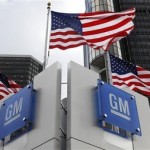GM has given South Korea plant a great priority as one of its main production hubs after its 2002 purchase of failed local car-maker Daewoo Motors. The country accounts for slightly more than 20% of GMs annual global production of some 9.5 million cars. More than 80% of those GM cars made in the country are exported.
The U.S. automakers plan, which already appears to have been put into action with recent decisions to shift production of newer models away from South Korea, highlights complaints from both local and foreign car-makers about rapidly rising wage costs in the worlds seventh-largest exporting nation.
“We need to make sure we mitigate risk in (South Korea), not over the next 2-3 years but over time, not to become too dependent on one product source,” one of the sources who declined to be identified due to the sensitivity of the matter, said to Reuters.
The manufacturing sectors total labor-compensation per employee in South Korea jumped excessively to 119% in the 10 years through 2009, compared to a 40% rise in the United States and a 27% gain for the euro zone, according to data from the Organisation for Economic Cooperation and Development.
According to the GM Koreas labor union talks of a pull-out of the company is a way to intimidate workers against seeking further pay increase. Last month, GM Korea reached an annual wage settlement that included bonuses of 10 million won ($9,000) per member, according to the GM Korea labor union.
However, GM appears to have already shifting its operations from South Korea, leading some union leaders to tell Reuters on condition of anonymity that they fear an eventual shuttering of some GM factories in the country.
GM told its South Korean labor union late last year it would not produce the new model of a compact car Chevrolet Cruze, in Korea, though it indicated it planned to continue to produce the current model there as a lower-cost strategic car for emerging markets. It has not specified where it expects to make the new car, though Spain is rumored to be the choice.
GM is especially worried about union legal action seeking to redefine the meaning of “regular wage” in Korea, which the sources say is by far the biggest threat to GM Koreas continued competitiveness.
The car-manufacturers shares remained almost unchanged on Friday while being up almost 25% year to date.





